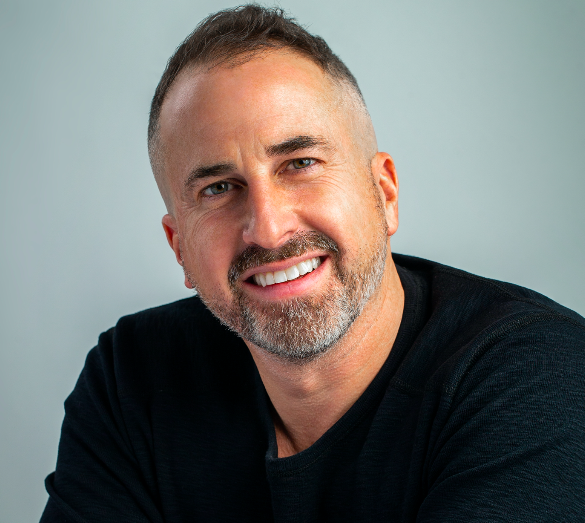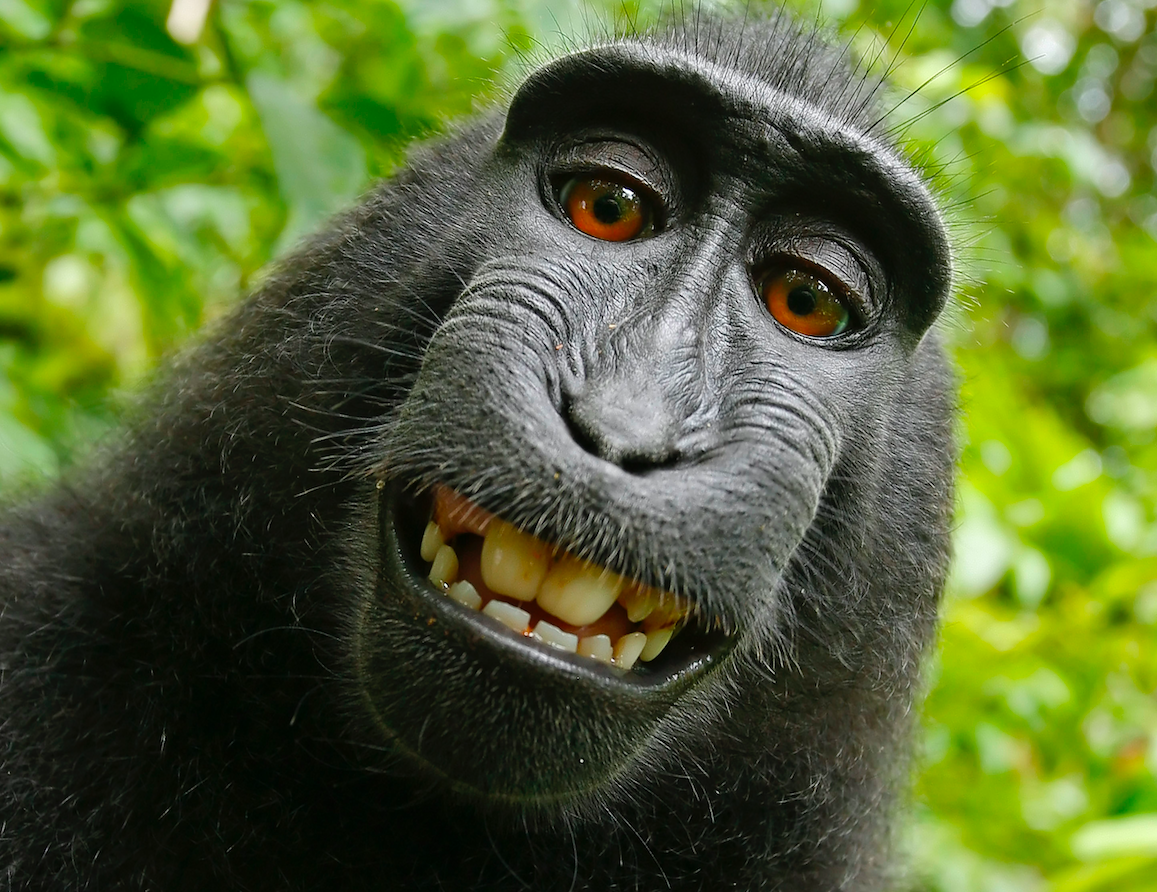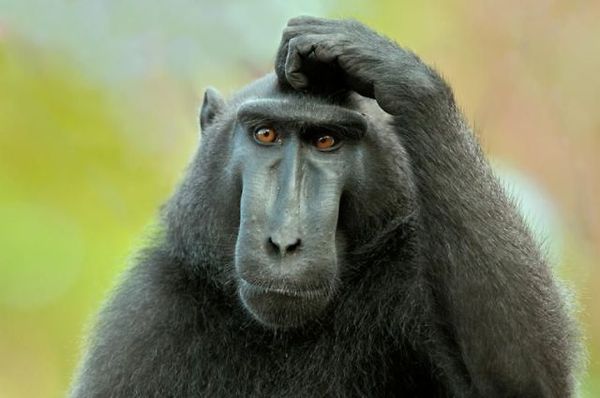In Sulawesi live the Yaki. On this Indonesian island, deep in the Tangkoko reserve, these jocose primates spend their time foraging and lounging about. Naruto, as one macaque became known, stirred quite the controversy. Donning an unforgettable smirk, she hijacked the trigger of photographer David Slater and snapped a selfie. The media went apeshit.
Excluding apes, we’re posting nearly 100 million selfies a day. Every second we feed our egos by uploading another one to Instagram. A true sign of the times is that more of us perish from selfie-induced deaths than shark attacks. Our selfie infatuation is simply a reflection of the love affair we have with ourselves. We seem to think (or at least behave) like we’re more entitled than any other living thing.
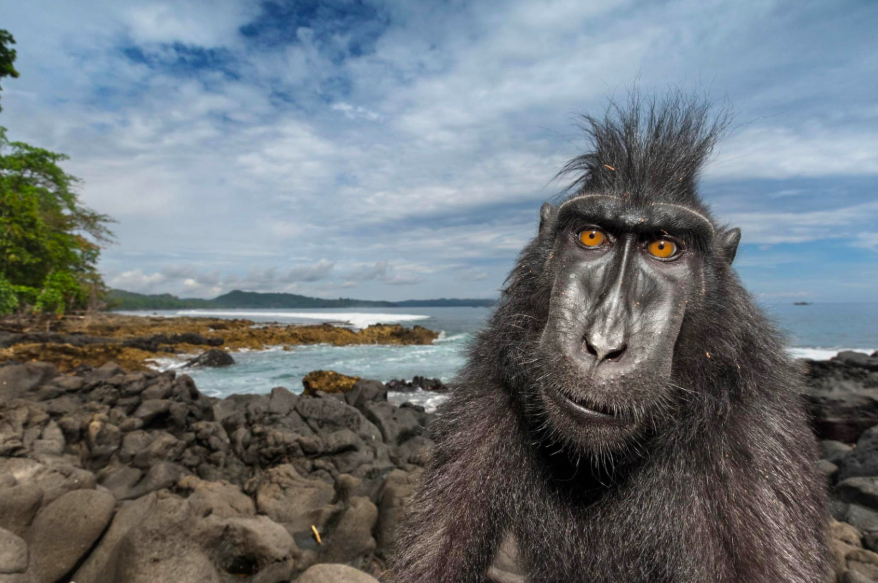
The hoopla surrounding the monkey selfie was not about what can be done to help an endangered animal. It was whether or not Naruto should hold the copyright to her self portrait. But when you’re being hunted for bushmeat, royalties are not top on your priority list.
Non-Stop Noogenic Neurosis
So what is exactly is it that makes us human? From ancient Greece right to the present day, contemplative souls have inquired. There is little agreement on the answer. With the rise of artificial intelligence(AI) and machine learning engineers scurry, albeit aimlessly, to best codify morality. “We are moving into a world where we care less about how other people regard us than how AIs’ do,” chimes media theorist Douglas Rushkoff. Meanwhile, tech-philosophers have a field day spouting how we can supercharge our abilities and even cheat death to become transhuman. In the brief time that we’ve graced this earth, our staggering technological progress has seriously misguided us. We do not play a starring role.
Self-centeredness at scale is an ontology that places us at the centre of it all. Asking what makes us human in the first place misses a trick. It’s as if revealing the answer might explain, and justify our behaviour — both bad and benevolent. Every day we’re becoming more human.
A fundamental characteristic of our humanness is our regard for life. It’s here, in the nature of how we connect to one another, to any and everything in the universe, that we rise to be better humans.
What stands in our way, the friction we feel — is rooted in suffering. It’s hard to have a genuine concern for others when we live in states of mental confusion. This uneasiness, or Dukkha, is part and parcel of the reason we choose to separate rather than join each other.
Good mental health is the capacity to expand oneself autonomously as well as integrate with others. When we experience heartbreak or a health scare, how we feel, react, communicate, and come together is a hallmark of humanity. Interdependency without autonomy suppresses psychological growth and autonomy without interdependence results in narcissism. It’s in the space between which gives colours to our lives. And the ways in which we choose to trust, connect, and share are what give it different hues.
The trend, sadly, is towards isolation. Individuals clash over adverse ideologies and nations tear themselves apart. The icing on the cake is our Westernised program of lacking — endlessly wanting more in order to fill our emptiness. Small wonder it’s hard to just be.
Nowhere is this more evident today than in Japan. In the face of the pressures of life, upwards of a million individuals have completely withdrawn from society. Hikikomori, as they are known, have turned inwards and become ‘post-modern hermits.’
It’s not just big in Japan. Noogenic Neurosis, a term coined by Holocaust survivor and psychologist Viktor Frankl to capture existential frustration is widespread. It manifests out of the millennial malaise, the provisional existence of gig workers, the demise of religious institutions, and social feeds that continuously reminding us of what we don’t have. Small wonder anxiety, depression, suicides, self-harm, and opioid use are skyrocketing.
Existential angst is no longer reserved to a mid-life crisis or traumatic events — it’s a long and constant murmur lurking in the shadows. Suffering has become part of everyday life. And as we unflaggingly, “Suffer more often in the imagination than in reality,” Seneca would surely be rolling his eyes.
Yawning and Inflated Egos
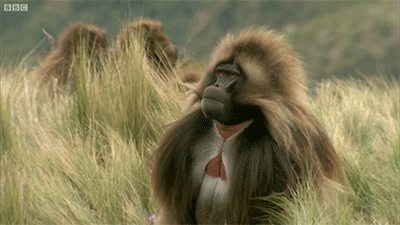
The resurgence of stoicism is evidence that we’re searching to live deeper and richer lives. Amidst an unknown abyss, the stoic lens helps us craft a different story — one where we adopt whichever attitude we so choose. If thoughts create our realities then perspective-hacking is the skill du jour.
How then might we swiftly, and easily, learn to walk a mile in someone else’s shoes? Enter yawning. This underplayed way that primates, including humans, communicate is a sure-fire sign of empathic concern. Studies show that the more self-referred one tends to be, the less they’ll yawn amidst a staged ‘secret yawner’. When we catch a yawn, it’s indicative of being in tune with the emotions of others. This is not to suggest we have a global yawn-in, it merely shows the subtle ways that empathy acts as the glue that holds us together.
Philosopher Rene Girard proposes that all what we really want is what others want. As memetic creatures, imitating others is simply copying their desires. This dependence on each other is core to our existential state and wholly a consequence of the circles and cultures we move in.
The precise mirroring may look different but will follow the same rhythms whether indigenous people of New Guinea or investment bankers of New York. Limbic resonance, the ability to attune to one another’s emotional state, feels good. Knowingly or not, we all sync to the tribe.
When we lack exposure to a variety of life experiences it can lead to intolerance. “Empathy is not imagining how you might feel in the place of another. It is imagining and trying to understand what the other person feels,” writes Elizabeth Segal, a professor of social work at Arizona State University. With social empathy, we can stretch interpersonal concern to others and inflate our compassion. In other words, perspective-hacking helps us gel with different cultures and avoid bad tribalism.
So if we become ourselves by mirroring others then the question is who exactly do we want to model? The Dalia Lama wouldn’t be all too bad. Yet it for the most part that we’re heading in the other direction. It’s getting harder for more and more to step into another’s shoes.
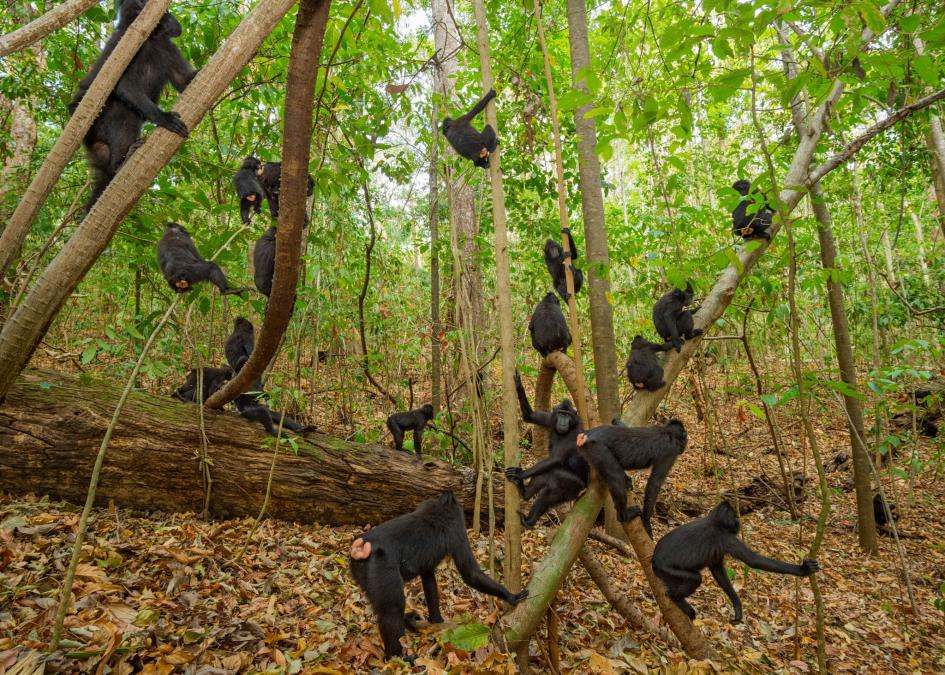
A self-love movement continues to flourish with unhealthy narcissism the side effect. We’re mirroring each other in all the wrong ways resulting in a cesspool for anxiety and compound interest for the ego. This is only exacerbated by Instalikes and the compulsion to post that perfect crushed avocados. The more we’re preoccupied with ourselves, the less we tend to care for, or give to, others.
Soulful Connections
So where does this leave us? Slipping into a nihilistic rut is just a cop-out. If we want to connect on a deeper level than catching a yawn we do so in joining together in our shared suffering. The most potent form of human connection arrives when we are vulnerable — open with our mental confusion. It’s a fundamental human impulse to come together and when we do so — it’s a way of alchemising our way back to the innocence of the Garden.
Being human enables us to reflect on the past (often as revisionists) and project into the future (typically as optimists). Language and imitation allow us to learn lessons from our ancestors and from one another in real-time. We can actually bind time, something no other species can do.
Still, we continue to strip the planet bare of resources. It’s getting so toasty here on planet earth it will soon become uninhabitable. The apex of our shared suffering may be the end of the human race. We have the intelligence, technology, and wealth to repair this world but what we lack is the collective will. Our ideas, our stories are not taking hold to spur us to immediate action. Leaving the mess we’re making today for another generation to clean up tomorrow is just plain baloney.
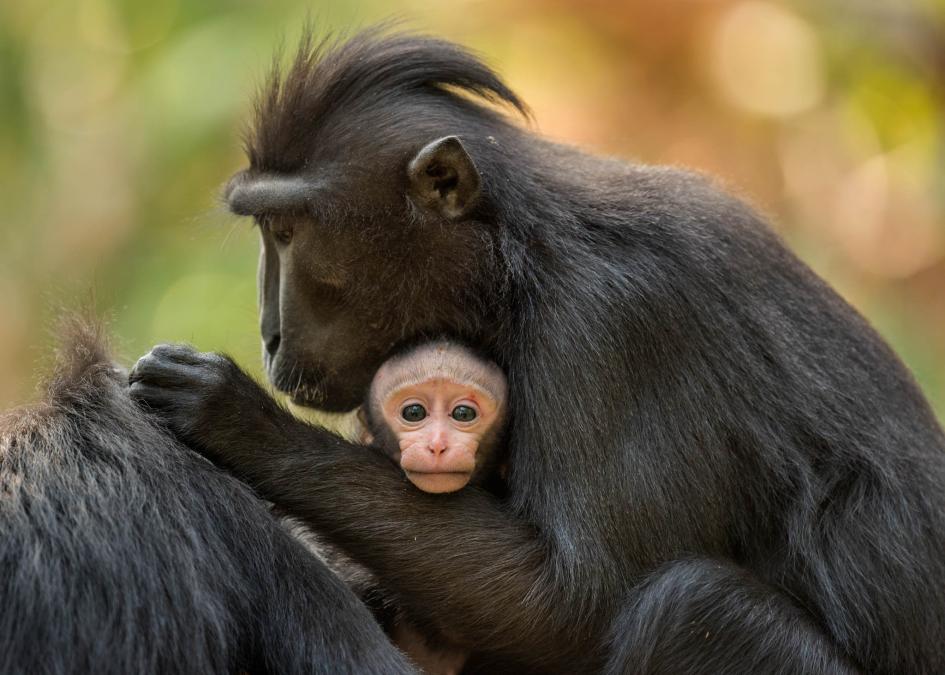
Instead of focussing on how we are different than other species and from each other — we could direct attention to how we’re so much the same. Our shared story now is that we have a brief amount of time to get our act together.
While we decide between ordering oat or almond milk lattes more than a billion people go hungry. We are not the stars of the show but supporting actors in the grand conspiracy of the universe.
A system reboot is long overdue. It’s time to see anew. We let go of the stories we have invented and invested in for thousands of years. Our masterful sense-making abilities can then play a new symphony. In this global concert, we love more than we fight, give more than we take, and connect more than we alienate.
A Warm Bath For Our Collective Brain
When scientists sequenced the genome of chimps they found that humans are 96% the same. Still, we were more concerned with an endangered selfie than species. The welfare of Naruto’s tribe played second fiddle to an intellectual property debate.
Considered a pest by some, pets by others, and a delicacy yet by others — the monkey selfies eventually made a difference. Eco-tourism has improved the welfare of the apes and locals now see them in a more favourable light.

There might be something that makes us unique. Perhaps the late Stephen Hawking had it right:
We are just an advanced breed of monkeys on a minor planet of a very average star. But we can understand the universe. That makes us something very special.
If so, then we also bear a responsibility to respect the cosmos and all the creatures within it. The onus is on us to leave this world a little better than when we entered it.
As we desperately try to carve out our own identities and express our unique selves — there’s a virtue in appreciating how similar all life is. We can run a warm bath for our collective brain — slip in and set a different course. Let us soak in a new story and bask in the zing of life.
I write about work. Join thousands and get my monthly digest here.

